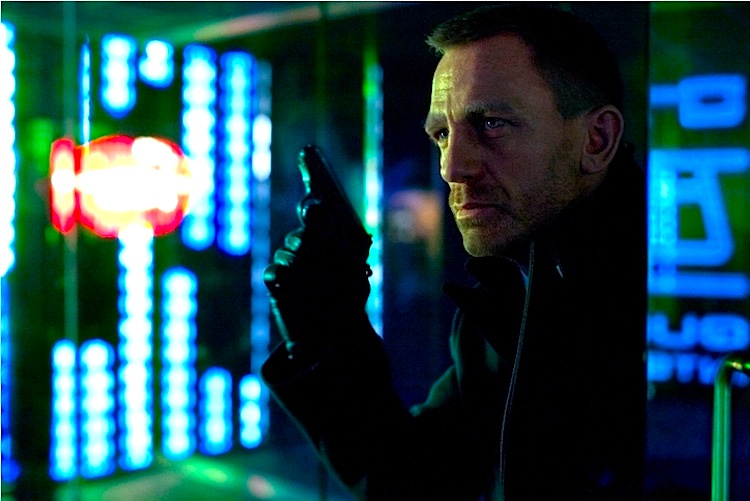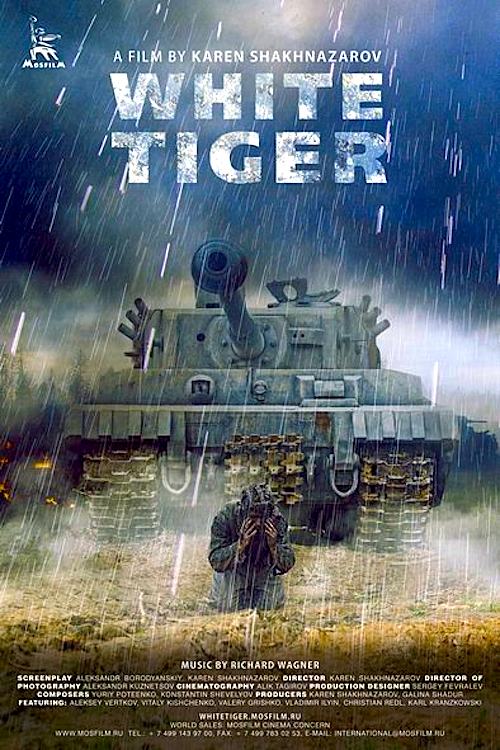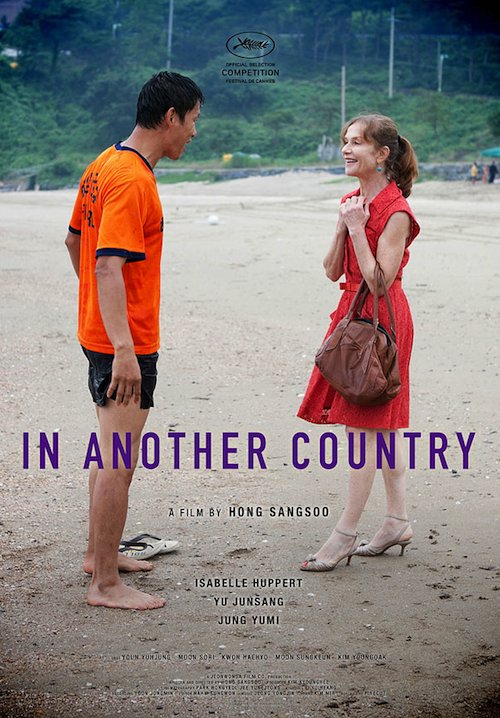[Editor’s Note: the post below appears today on the front page of The Huffington Post and AOL-Moviefone. I had the opportunity to see Skyfall at a screening of the recent AFI Festival in Hollywood, and wish to thank the AFI Festival for making that possible.]
By Jason Apuzzo. How does James Bond do it? He barely seems to have aged a day. The famously overworked British Secret Service agent, drinker of vodka martinis, and seducer of dangerous women (why are Bond’s girlfriends always pointing guns at him?) is now 50 years old in the movies — yet it hardly shows.
With Skyfall, the latest 007 thriller opening this weekend, it’s now been five decades since the Bond character debuted on screen in 1962’s Dr. No. Since that memorable first film, in which Sean Connery saved the world from a megalomaniac with metal hands — while rescuing Ursula Andress from the confines of a white bikini — James Bond has saved the world from nuclear bombs and space lasers, cheated death using jet packs and exploding cigarettes — and even found time to romance women with names like ‘Plenty O’Toole’ and ‘Xenia Onatopp.’
It’s been a busy, full life for the world’s most famous secret agent — which begs the question of why, as currently embodied by Daniel Craig in the latest film, the character suddenly seems so fresh and relevant to the world of today.
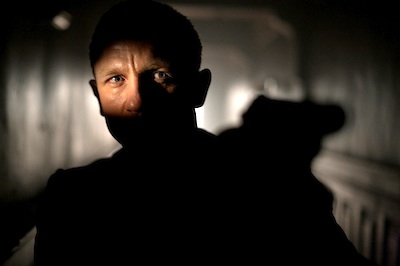
The question arises because the James Bond of Skyfall no longer seems like an exhausted relic from another era, as he often did during the ’90s and early 2000s. Instead, he now feels like a character who has been fully and (for the most part) successfully reinvented as a merciless, sardonic and lethal warrior for our age of terror.
And although Skyfall isn’t quite the classic some critics are making it out to be, it’s easily one of the best Bond films since the 1970s.
On this point, I must confess to having given up on Bond long ago. Until recently 007 was looking like a tired hero — a guy in a middle-age crisis, a character to put in the next Expendables. M needed to send Bond into retirement — maybe ship him off with a fifth of vodka and a Russian mistress (I recommend Anya Amasova, aka Agent XXX from The Spy Who Loved Me) to James Bond Island off the coast of Thailand. Even SPECTRE would probably leave him alone.
After all, with the Cold War long over (despite Vladimir Putin’s best efforts), Great Britain no longer the force it once was, and with women less eager to play characters named ‘Kissy Suzuki’ or ‘Dr. Molly Warmflash,’ you’d think 007 would be quietly boxed away in the attic by now along with vinyl records and your parents’ fondue pot.
Casino Royale in 2006 seemed to change all that, but director Sam Mendes’ Skyfall really confirms it; Bond now absolutely works as a hero for the 21st century. The question is: why?
There are three reasons, in my opinion:
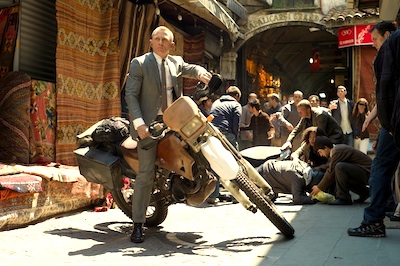
1) Bond has been fully reinvented for the War on Terror era.
This process began in Casino Royale, but Skyfall digs much deeper into the purpose and mentality of our intelligence agencies in the post-9/11 world — and strongly reaffirms their value. Without giving away too much of Skyfall‘s plot, suffice it to say that the entire purpose of the film is to re-invent the James Bond mythology to fit the current war, which as Judi Dench’s M memorably states is fought primarily “in the shadows” — with our enemies less likely to be nation states with massed armies than shadowy, sociopathic operators working within hidden networks.
And it’s precisely in this environment that Bond thrives.
As Skyfall opens, information pertaining to NATO penetration of worldwide Islamic terror cells has been stolen in Istanbul, and Bond has to get the data back before Western agents are exposed and killed. As the story unfolds, Bond’s value as an experienced field agent — able to make human judgments in murky situations and act, where technology alone is inadequate — is constantly reinforced, even when his physical and emotional resources are depleted.
Bond and his colleagues are also depicted as patriotic and reflexively selfless, to the point of being subtly associated with Winston Churchill and his legacy. (Look for references to Churchill’s wartime bunker along with visual cues of a vintage British bulldog.) In the midst of this, the tone of the film is more sober — and befitting of wartime — than what we’ve seen from the Bond series in a long time. Continue reading LFM’s Jason Apuzzo at The Huffington Post & AOL-Moviefone: Skyfall & How James Bond Stays Current at 50
